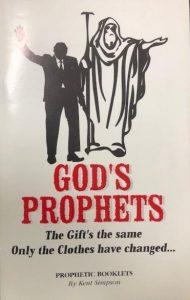
The Consequences of Prophecy-
The King who Corrupted a Divided Nation
As King Solomon enjoyed greater luxuries and built more pagan temples to satisfy the desires of his cultic priestess wives, the average citizen began to despise the king and a rebellion began to brew. Stirred by a prophetic demonstration concerning the future of the kingdom, Jeroboam, a civil servant, led a coup which divided the nation. Though promised a long-lasting kingdom if he followed the Ways of the Lord, this Champion of the Common Man fell into the same idolatry as those before him damning his country for generations.
Jeroboam’s early life was one of pain and misery. His father Nebat, died when Jeroboam was still young (1 Kings 11:26) leaving his mother Zeruah a widow. His mother’s name means “leprous” lending to the theory that he and his mother may have been outcasts in their community, since lepers were thought to be punished publicly by God for heinous sins. Despite these struggles, Jeroboam worked intensely and became known in the kingdom as a mighty man of valor and because he was seen as industrious and a good manager, he was even placed as superintendent over several of Solomon’s building projects (ref. 1 Kings 11:27-28).
But it was during his time working on these large public works projects, paid for through constantly increasing taxes on the people as well as through compulsory labor shifts (ref. 1 Kings 9:15-19) that Jeroboam began to hear the stirrings of revolt against the King. While the expansion of current defensive walls and fortresses to protect the nation’s borders from foreign invaders were sensible and necessary infrastructure improvements that average citizen’s approved of, Solomon also dipped into the public coffers and workforces to build increasingly elaborate palaces and temples for his foreign cultic priestess wives.
The citizenry of Israel were not the only ones who were angry about how Solomon was allocating the wealth of the nation. The Lord was angry with Solomon because his heart had turned away from the Lord, the God of Israel, who had commanded him to not go after other gods. But because Solomon did not follow the Lord’s Command, God decreed that He would tear the kingdom away from Solomon and give it to his servant. But for the sake of his father David, God would not split the kingdom during Solomon’s reign, but would wait till his son Rehoboam took office. But the entire kingdom would not leave Solomon’s family, as God decided that at least one tribe would be given to Solomon’s son Rehoboam for the sake of David and Jerusalem (ref. 1 Kings 11:9-13).
As Jeroboam was returning home after having completed his obligatory work on Solomon’s building projects, he came across Ahijah the Prophet of Shiloh, who was wearing a new cloak. Ahijah began a prophetic procession by removing his new cloak and tearing it into twelve pieces, telling Jeroboam to take ten segments for the Lord God of Israel was announcing that He was about to tear the Kingdom out of Solomon’s hand and give Jeroboam ten tribes. This was going to happen because Solomon and Jerusalem had abandoned God, bowing, worshiping, and offering sacrifices to the foreign gods that Solomon’s wives had introduced to the nation (ref. 1 Kings 11:29-36).
God would appoint Jeroboam as King over Israel and he would reign over all that his heart desired, but only if he did as God commanded him and walked in obedience to what was right in the Eyes of the Lord. If he obeyed God’s Decrees and Commands as King David had, God would be with Jeroboam and would establish a dynasty as enduring as David’s and Israel would be given to Jeroboam and his family. They would be the instruments God would use to humble David’s family for their unfaithfulness (ref. 1 Kings 11:37-39).
When King Solomon became aware of Ahijah’s prophecy over Jeroboam, Solomon tried to kill Jeroboam, who fled to Egypt where he remained hidden for several decades until Solomon’s death (ref. 1 Kings 11:40).
During the coronation to make Solomon’s son Rehoboam king, Jeroboam returned to Israel and joined a delegation sent to ask the new king to reduce the crippling tax and civil service requirements they were placed under. The newly crowned king asked the representatives for three days to make a decision and initially turned to the elders who had served his father King Solomon during his lifetime for their advice (ref. 1 Kings 12:1-6; 2 Chronicles 10:1-6).
The sages wisely suggested that “If today you listen to the people’s appeals and earnestly consider what they are asking and say that their requests are fair and just, you will earn their loyalty and trust forever” (ref. 1 Kings 12:7; 2 Chronicles 10:7).
But the inexperienced king was foolish and rejected the advice of the elders; instead consulting the young men he had grown up with in the palace. He asked his friends mockingly what kind of message to send back to the assembly that had asked him to lighten the people’s taxes?
They instructed King Solomon’s son Rehoboam to respond contemptuously, informing them that the taxes that Solomon had levied against them would seem light compared to the even heavier yoke he would place upon them. They had been scourged with whips during his father’s administration, but he would scourge them with scorpions instead (ref. 1 Kings 12:8-14; 2 Chronicles 10:8-14).
When the tribes of Israel saw that the King had refused to listen to their petitions, they decided to secede for the United Kingdom, with only the tribe of Judah remaining with the House of David, under the rule of Rehoboam. When the king sent Adoram the Minister of National Service to try to force the tribes to continue Solomon’s public works projects, they publicly stoned him and chased King Rehoboam back to Jerusalem (ref. 1 Kings 12:15-18; 2 Chronicles 10:15-18).
Though Jeroboam was crowned king over the Northern Kingdom, just as God had promised and Ahijah had prophesied, Jeroboam became paranoid that if the people fulfilled their obligation to go to Jerusalem and participate in the required feasts, they would desire to rejoin as a single nation again and then they would kill him. After asking for advice, Jeroboam made two golden calves and re-instituted the cultic practices that the early Israelites had learned while enslaved in Egypt, and which he was exposed to during his political asylum.
Jeroboam’s descent into blatant idolatry further extended to him replacing the Levites with his own priestly classes, creating a national religious feast on the fifteenth day of the eighth month, possibly to challenge the required feasts of Passover and Sukkot (Tabernacles), and building competing religious centers to Jerusalem in Bethel and Dan (ref. 1 Kings 12:26-33).
Prophet Ahijah, the very same man who prophesied that Jeroboam would take the throne over Israel, would later chastise Jeroboam for becoming more evil and corrupt than the idolatrous Solomon before him. Ahijah prophesied that for Jeroboam’s role in turning the Northern Kingdom towards false gods, the throne would be taken from his family and the nation would be captured and sent into exile.
Jeroboam was a man of humble beginnings, who through hard work, rose through the ranks of government and was put in charge of many important building projects. It was there that he heard the cries of the common citizen to stop the building of temples to Solomon’s foreign wives’ gods through the people’s taxes and forced labor. Chosen by God to lead the Northern Kingdom and punish Jerusalem for turning away from Him, Jeroboam instead further introduced greater forms of idolatry, rather than follow the Ways of the Lord. While he was initially praised as the king who rescued the people from a tyrannical king, he is ultimately remembered as the ruler who ruined the soul of his country and began its ultimate destruction.
Prepared by, Kent Simpson, Apostolic Prophet & Eric Sepulveda, PMT Administrator
For more prophetic media groups click here


